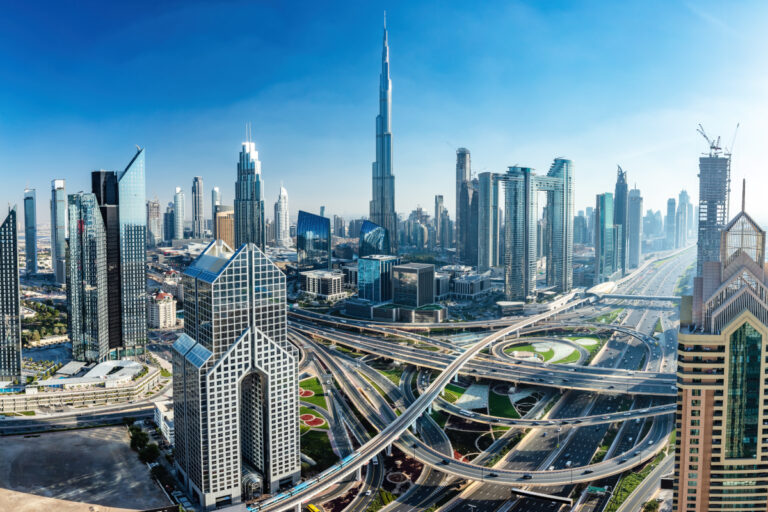The venture capital investment ecosystem in the Gulf countries continues to thrive and innovation remains a top priority for regional governments that identify several key sectors as drivers of growth. But the safe bet calculation is now obsolete. Risk-taking adds to the grandeur of the role of the new “captain of industry”:

“Recent global market trends have highlighted the need for continued innovation across all sectors from Arab countries. Investing only in large, stable companies is simply no longer the way forward.”
But all post-industrial inventions could be summed up in a handheld order giver: the mobile phone. Thanks to new data from Artificial Intelligence and Machine Learning (or ML), a single word is enough to redirect the delocalized flows of fintech, which is taking the lion’s share of the Blockchain market. With these five flagships of R&D activity, innovative start-ups are emerging in the Middle East and expatriates are flocking there.
Fintech, the new financial hub in the UAE
Already an oil hub, the UAE is aiming to become the new global finance hub. The largest number of FinTech and sector investments in the Middle East and North Africa come from the federation. The Dubai International Financial Centre and the Abu Dhabi Global Market have contributed to this dynamism.
However, these are often bureaucratic structures, born from the culture of “paper”, in both senses of the term:
- Because they require a lot of paperwork and signatures before reaching an agreement.
- And secondly, because they rely on the circulation of money, in the form of coins, notes, and checks, the values of which tend to disappear in a cashless society…
- The ability to use relevant methods to effectively manage financial issues through smart devices such as smartphones, PCs, and tablets, replaces the disadvantages of cumbersome structures.
Towards a single e-currency in the Arab world
The Central Bank of the United Arab Emirates announced some time ago the creation of a cryptocurrency common to Saudi Arabia and the Emirates for transactions between the banks of these two countries. Destined to be subsequently extended to the entire Arabian Gulf, and possibly to other Muslim countries. This currency would initially be used for large-scale commercial exchanges, to then be used by citizens.
The digital transition requires awareness of online security standards. The Covid-19 lockdown has caused a radical change in consumer habits, increasing the demand for e-commerce and this helps to improve (i.e. secure) digital transactions.
50% more consumers now prefer to make their transactions online and this attitude goes well beyond the health crisis. Previously, the fear of anonymous scams would inhibit this sector, even if operators strengthened data protection.
Trusted companies offer alternative monetary and investment services to provide an all-in-one financial management platform with optimized security protocols. Thus, Arab businesses stay ahead, thanks to cutting-edge digital solutions integrating artificial intelligence with human resources, in complete security and confidentiality.
The next step for sustainable Emirati investment and the West
The UAE is undeniably attracting external investment and this will only accelerate: in 2021, nearly 40% of investments in startups based in the Emirati kingdom came from abroad. This strongly attracts investors to establish themselves there.
Also known as a new tax haven, the United Arab Emirates is not, however, registered on a government blacklist. It has signed a bilateral agreement to transmit the necessary information on tax residents established in the UAE.
Tax regulations relaxed compared to Europe
- VAT is 5% for “everyday” services and products (food, education, health, etc.)
- The housing tax for tenants corresponds to 5% of the annual rent and 0.5% of the value of the property for owners.
- Income tax is set at 0% for tax residents in Dubai.
- Corporate tax:
- Freezones, the tax is 0% (9% if the Freezone has an annual profit greater than AED 375,000).
- Mainland, tax is also 0% (this rate then increases to 9% above an annual profit of AED 375,000 )
Towards a democratization of exchanges
Fintech also encompasses the areas of payment processing for consumers and businesses. The widespread use of this recourse will simplify procedures, improve transaction security, give a major boost to e-commerce, democratize trade between the West and Arab countries without intermediaries, and increase development prospects.
This new competitive landscape promises to see new opportunities emerge, both for the Gulf countries and those establishing themselves there, as well as for the rest of the world. Technological advances, the place of finance on the global market, and the advantages of becoming the new start-up nation make the United Arab Emirates a nugget to watch closely!


















